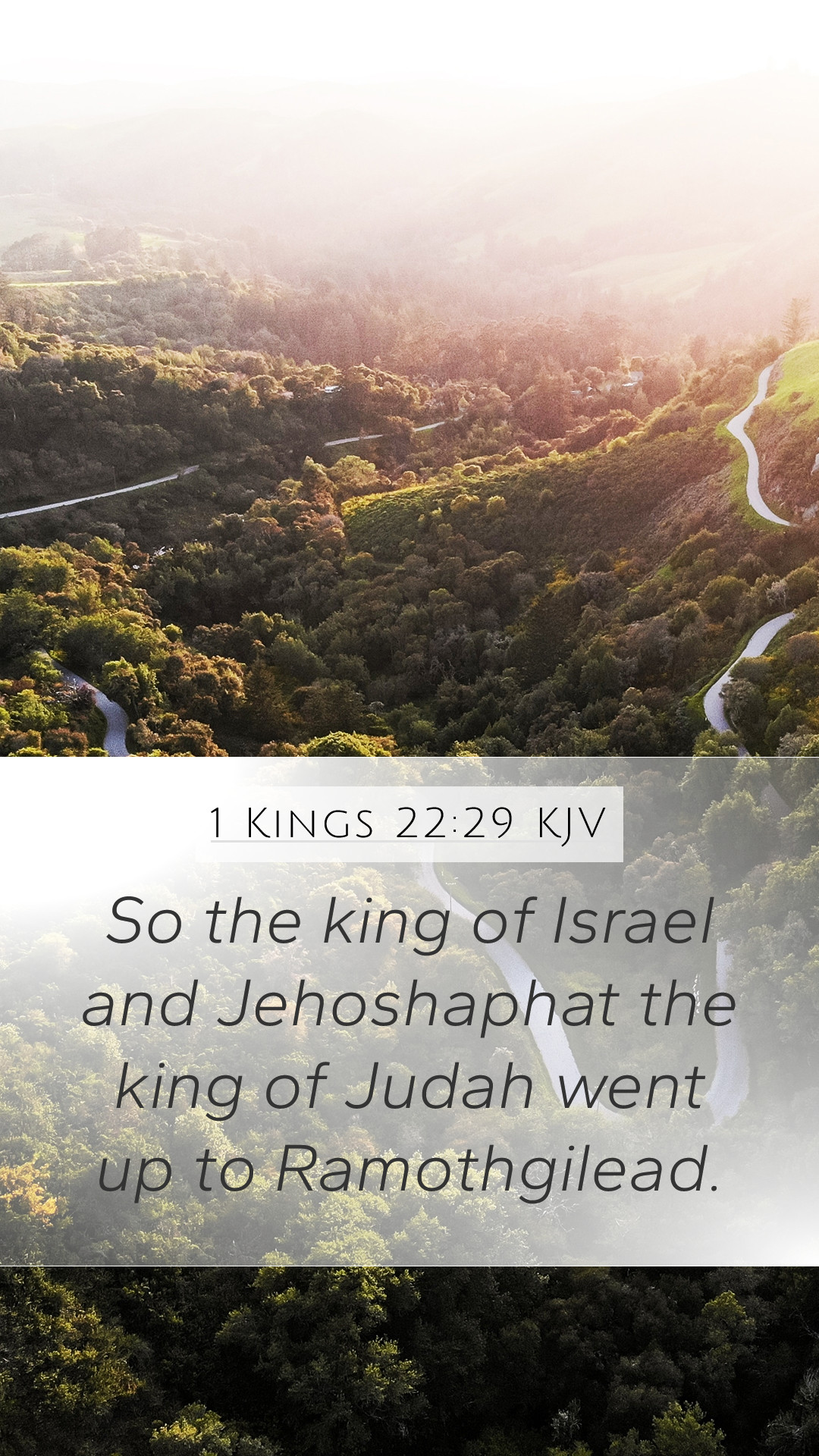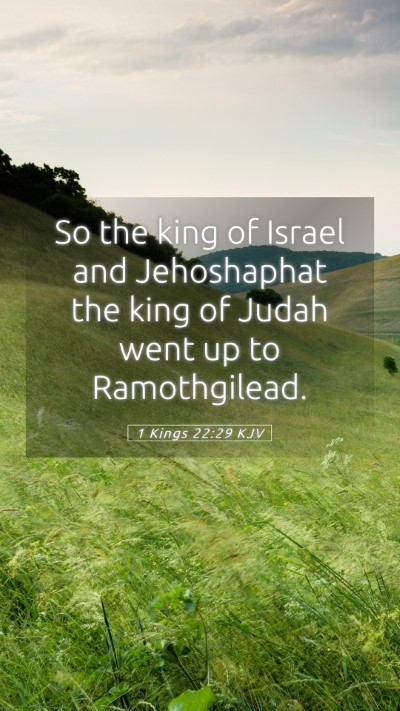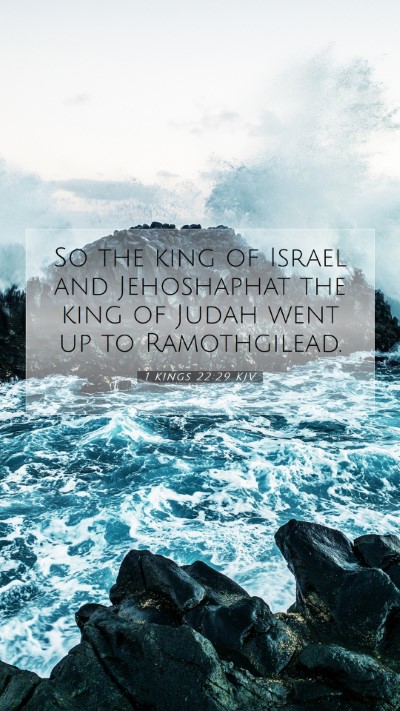Understanding 1 Kings 22:29
1 Kings 22:29 states: "So the king of Israel and Jehoshaphat the king of Judah went up to Ramoth-Gilead." This verse introduces the alliance between King Ahab of Israel and King Jehoshaphat of Judah as they prepare for battle. This partnership signifies a significant moment where two kings converge with mutual interests, igniting complex dynamics of politics and spirituality that attract the attention of prophets and earthly observers alike.
Bible Verse Meaning
This passage carries immense implications for understanding political alliances in biblical contexts. As per Matthew Henry's Commentary, the collaboration between the two kings not only illustrates a strategic military undertaking but also reflects deeper themes regarding the struggle for righteousness, where differing motives between the Israelite and Judean kings come into play. It draws attention to the complexities of leadership and the influence of prophetic voices in times of critical decisions.
Albert Barnes adds further depth by noting the historical significance of Ramoth-Gilead as a contested territory, encapsulating themes of warfare intertwined with divine providence. This location symbolizes not just geographic conflict, but the broader spiritual struggle represented in the lives of God’s people. The decisions made at Ramoth-Gilead were marked by divine forewarning through the prophets, demonstrating the interplay between human action and divine guidance.
Adam Clarke provides an insightful analysis on the character of King Ahab, who, driven by conflicts of power, embodies the moral dilemmas faced by leaders. His willingness to reconsider the advice of deceitful prophets reveals the often-tragic flaws of the human condition, seeking validation through worldly means rather than spiritual discernment.
Key Themes and Teachings
- The Nature of Alliances: The collaboration highlights how strategic partnerships can lead to both beneficial outcomes and potential spiritual decline, prompting reflection on contemporary alliances.
- The Role of Prophetic Voice: The chapter emphasizes the need for discernment in leadership, where divine messages are crucial to navigate through decision-making processes.
- The Consequence of Choices: The events at Ramoth-Gilead set the stage for consequences that follow King Ahab and King Jehoshaphat, illustrating how decisions made in the flesh can lead to dire repercussions.
Bible Study Insights
This passage offers rich Bible study materials for group discussions. It may prompt questions related to how individuals can ensure their decisions align with divine intentions. Furthermore, the relationship dynamics between different rulers can translate into modern discussions about leadership integrity and accountability.
Cross References
- 2 Chronicles 18:1 - Provides additional context to the relationship between Ahab and Jehoshaphat.
- 1 Kings 22:6 - Details the prophets' advice before the battle, showcasing the importance of heeding divine counsel.
- 1 Kings 20:1-43 - Highlights the earlier battles fought by Ahab, setting the backdrop for this alliance.
Applying the Scriptures
As one interprets and applies the lessons from 1 Kings 22:29, consider how contemporary leaders can draw from these biblical principles in decision-making contexts. This verse encourages believers to reflect on their partnerships and the impact of their choices, emphasizing the significance of seeking divine guidance before acting.
Conclusion
In summary, 1 Kings 22:29 provides essential insights into the nature of political alliances, prophetic insights, and the consequences of decision-making. It encourages readers to engage deeply with Bible verse explanations while drawing applicable lessons for personal and communal contexts.


